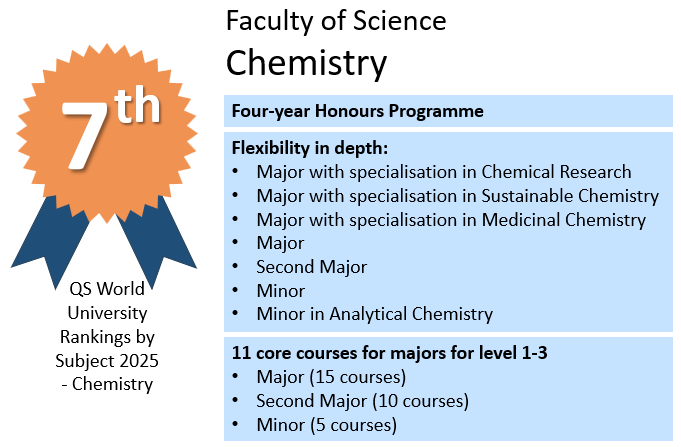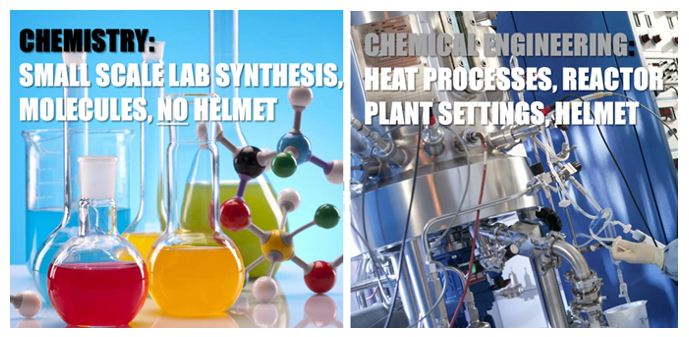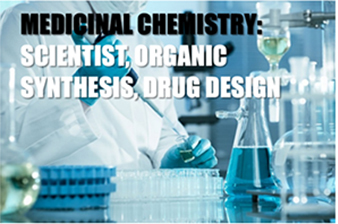Differences with other programmes
|
| 1. |
How does Chemistry at NUS stack up against other chemistry degree programmes in Singapore? |
|
The NUS Chemistry Programme is a four-year programme leading to a BSc (Hons) under the College of Humanities and Sciences (CHS). Under CHS, you will have flexibility in depth in your study of chemistry, the opportunity to combine your chemistry education with other fields of study from both the Faculty of Science (FOS) and Faculty of Arts and Social Sciences (FASS), along with a foundational CHS core curriculum. Find more here. |
|
 |
| 2. |
What is the difference between Chemistry and Chemical Engineering? |
|
A degree in chemistry is quite different from a degree in chemical engineering. A chemist is interested in the applications of chemistry in solving everyday problems, for example, developing new materials for clean energy, investigating new drugs to cure a disease or synthesising new molecules and materials. On the other hand, a chemical engineer is, first and foremost, an engineer who possesses technical knowledge in chemical plant operations. |
|
 |
| 3. |
What is the difference between Medicinal Chemistry and Pharmacy? |
|
Medicinal chemistry involves the syntheses, characterisation and understanding the biochemical reactivity of chemical compounds that have therapeutic properties. In the process of drug development, medicinal chemistry occupies an upstream position where a potential therapeutic compound is first designed and synthesised. Pharmacy deals with the formulation and dispensing of drugs. Pharmacists are healthcare experts who help patients understand and use their medication appropriately. |
|
  |
Programme Information
|
| 4. |
What are some of the key features of the current chemistry curriculum under the College of Humanities and Sciences (CHS)? |
|
Under CHS, all degrees are four–year direct honours degrees. The common CHS curriculum (13 courses) will impart intellectual breadth where you will acquire essential foundational skills in literacy, numeracy and critical thinking. The chemistry curriculum is flexible in depth under CHS as it allows you to chart your learning journey according to your interest, aptitude and career aspirations. You can combine your Major or Minor in Chemistry along with other fields of study offered by the Faculty of Science (FOS) and the Faculty of Arts and Social Sciences (FASS). |
| 5. |
What is the B.Sc. (Hons) in Chemistry with specialisation in Chemical Research about? |
|
This is our flagship programme for the Chemistry major.
- Department requirements: 11 core Chemistry courses including physical, inorganic, organic, and analytical chemistry, laboratory courses and 4 elective courses.
- Faculty and University requirements: 13 CHS core curriculum + 12 Unrestricted Electives (UE)
- In addition: Enroll in both (i) an Undergraduate Research Programme course and (ii) Final Year Project course.
|
| 6. |
What other choices do I have for studying chemistry in CHS? |
|
One of the hallmarks of CHS is the flexibility it offers you in choosing and combining Majors/Minors from both FoS and FASS for interdisciplinary education. Other choices include: Chemistry Major, Specialisation in Sustainable Chemistry, Specialisation in Medicinal Chemistry, Second Major in Chemistry, Minor in Chemistry and Minor in Analytical Chemistry. The department requirements are as follows:
- Chemistry major: 11 core + 4 elective Chemistry courses
- Specialisation in Sustainable Chemistry: 5 courses from the specialisation elective basket (CM3254, CM3261, CM3267, CM4228, CM4254, CM4269, CM4282, CM3288S, CM3288SR)
- Specialisation in Medicinal Chemistry: 5 courses from the specialisation elective basket (CM3221, CM3225, CM4215, CM4227, CM4236, CM4271, CM4274, LSM3211, PHS3102, CM3288M,CM3288MR)
- Second major: 10 Chemistry courses consisting of core 1000/2000/3000 courses with either CM3191 or CM3192
- Minor in Chemistry: 5 Chemistry courses consisting of core 1000/2000 courses
- Minor in Analytical Chemistry: 5 courses consisting of CM1102, CM2133, CM2143, CM3141 and CM3192
|
Application/Admission
|
| 7. |
Can I join CHS with these ‘A’ Level grades or this Polytechnic GPA? |
| |
The indicative Grade Profile (IGP) for admission to NUS courses can be found at https://www.nus.edu.sg/oam/undergraduate-programmes/indicative-grade-profile-(igp) |
| 8. |
How do I apply? |
|
For application details, please refer to NUS Office of Admissions: https://nus.edu.sg/oam |
| 9. |
If I am interested to be a chemistry major, how do I start? |
|
Please take CM1102: Chemistry the Central Science which is the introductory class for other higher level chemistry courses. This course will introduce chemistry in a thematic fashion, integrating physical, inorganic, organic and analytical chemistry. |
| 10. |
I do not have H2-Level Chemistry or its equivalent but I am very interested in taking chemistry courses and even majoring in chemistry. Can I do so? |
|
Yes, please take CM1417 as a bridging course to reach H2-level chemistry or equivalent proficiency. After this course, you can proceed with CM1102 and beyond. |
Other Information
|
| 11. |
With a Chemistry degree, am I able to study medicine in the future? |
|
Yes, if you choose to read medicine locally, it is possible to apply to Duke NUS Graduate Medical School with a Bachelor’s Degree in any discipline. A chemistry degree is particularly relevant and useful. Please refer to this site for their Admission Requirements. |
| 12. |
I have a general question about Grade-free first semester. |
|
Please refer to this page: http://www.nus.edu.sg/registrar/academic-information-policies/undergraduate-students/continuation-and-graduation-requirements |
Career Prospects
|
| 13. |
What are my career prospects with a chemistry degree? |
|
Over the past years, more than 80% of chemistry graduates find employment within six months of graduation in many chemical-related companies as well as in other industries. A wide variety of positions is open to our graduates., They can work as an analytical chemist, quality assurance chemist, forensic scientist, crime scene specialist, research and development (R&D) scientist, compliance specialist, patent scientist, health and safety officer, educator, and even as a food and flavour scientist, medical technologist and financial manager. |



